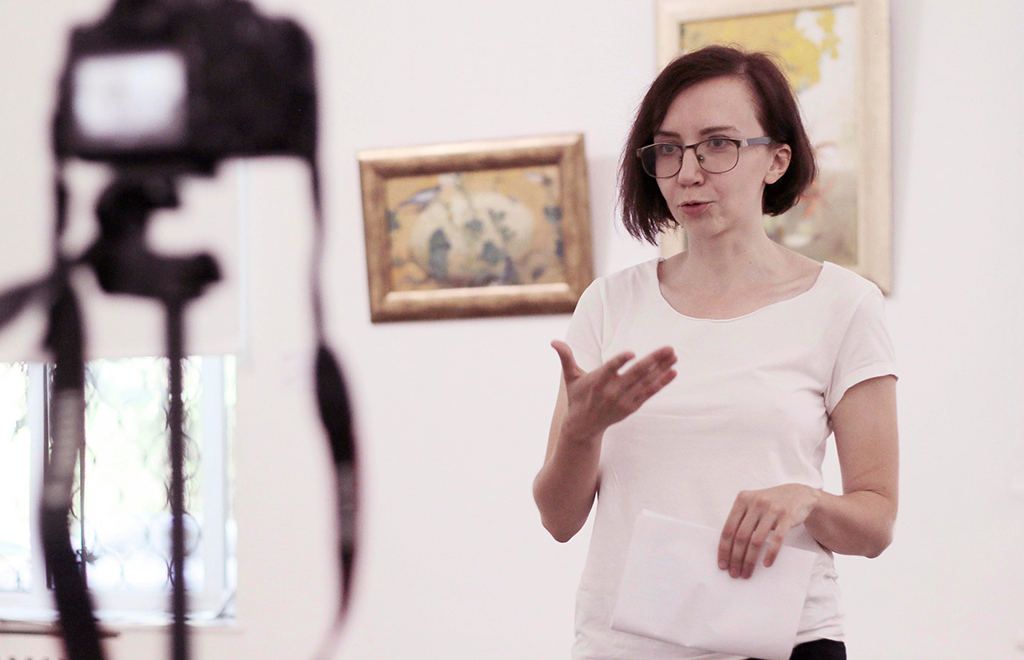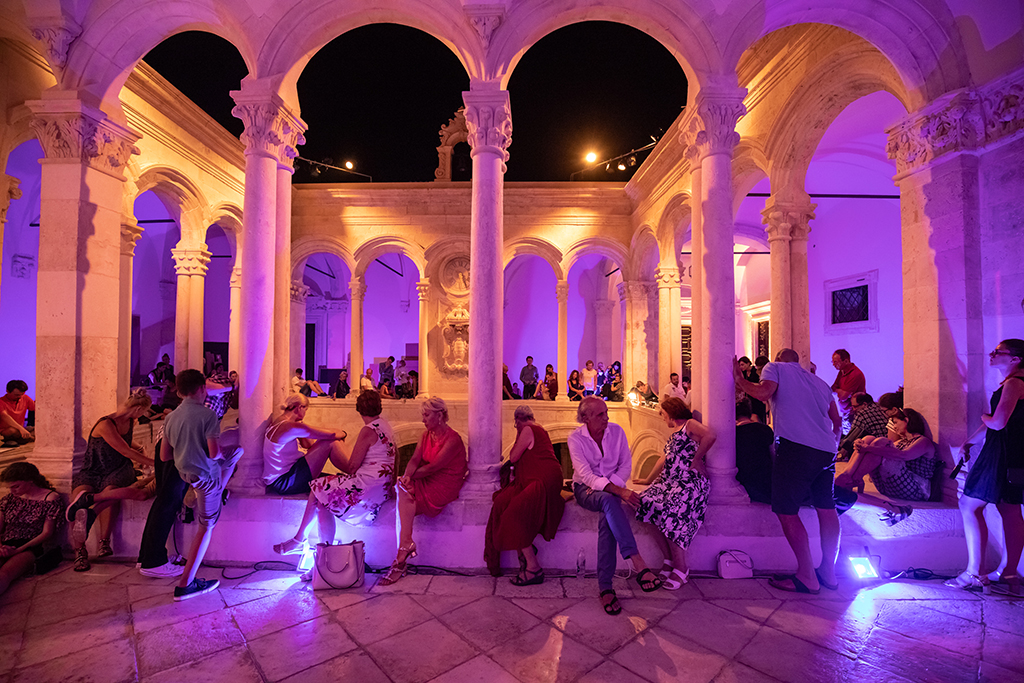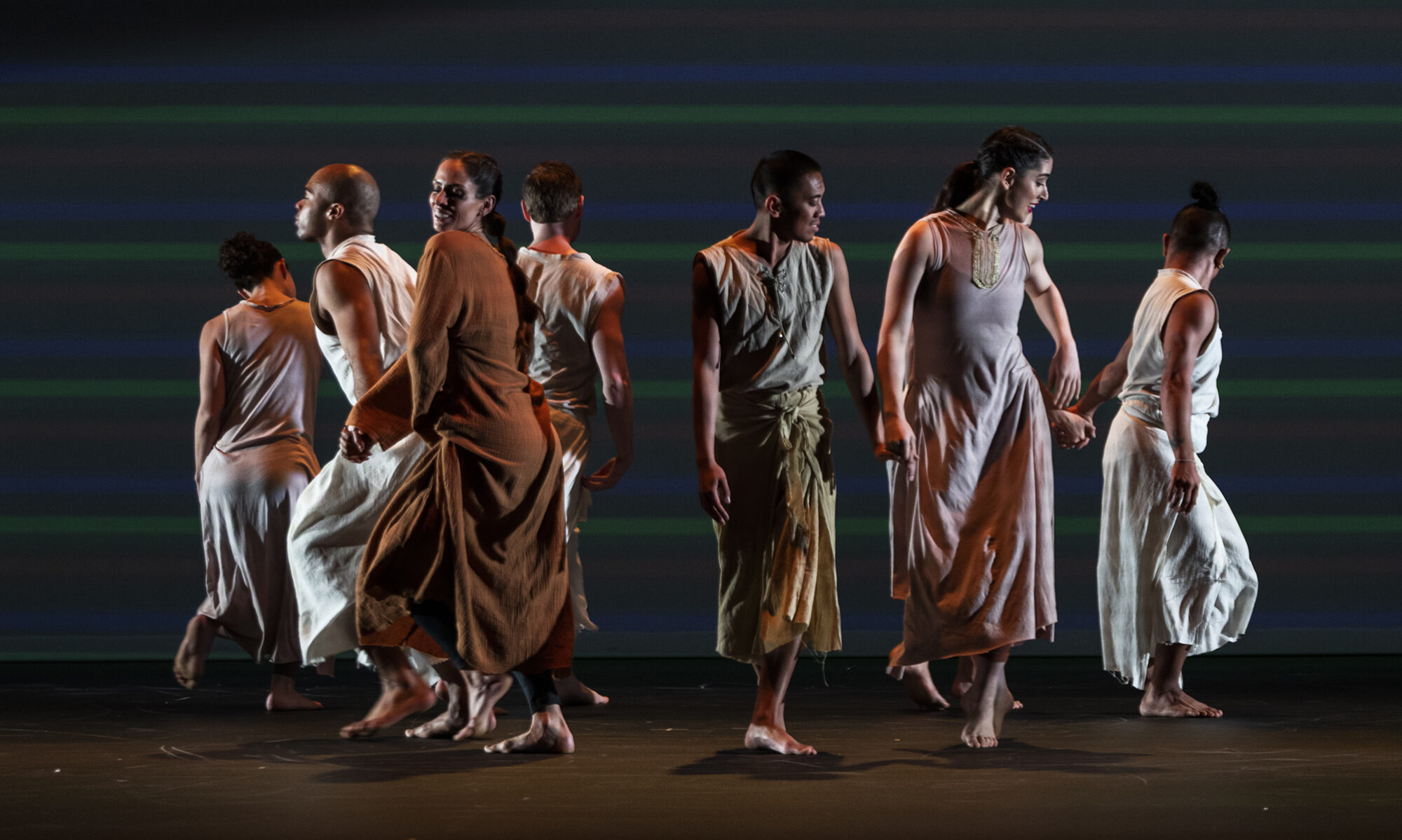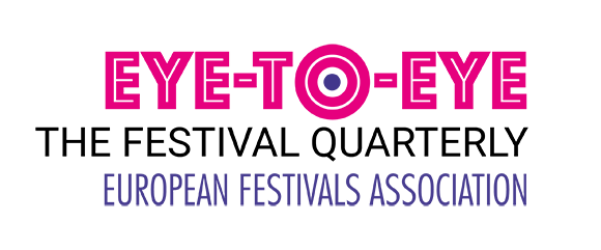Joining Hands and Hearts: Notes from Ukraine at the beginning of a long Journey

Kateryna Lozenko is an Ukrainian musicologist (PhD), cultural manager, and journalist born in 1986. She graduated as a pianist, obtaining a master’s degree from the Kharkiv I.P. Kotlyarevsky National University of Art but decided not to perform on the stage but to tell stories about classical music. Her PhD thesis (2016) was on synesthesia in 20th century music. Since September 2022, she has been getting her second master’s degree in “Audiovisual Media and Digital Journalism”.
She is the Communication Manager of KharkivMusicFest festival – the largest international festival of classical music in the East of Ukraine. Additionally, she works as a Senior Lecturer at the Department of Interpretology and Music Analysis at Kharkiv I.P. Kotlyarevsky National University of Arts.
Prologue. Before the Unexpected Journey
“Hello Kateryna.
I’m one of the violinists who came to your beautiful city 3 years ago to play some Rameau with Les Musiciens du Louvre.
I have no words about what’s going on in your country and happens to all of you Ukrainians. I just wanted to send you a message for supporting you in this inconceivable tragedy.”
“Hello Nicolas,
Thank you for your support, it’s really important in these hard days. I’m in Kharkiv now, in the basement of the Philharmonic hall where you had a concert (what a strange life!). Tomorrow we will try to leave the city. I think everything will be OK.”
And so the past year began, a year that has irreversibly transformed my life as a cultural manager, a PhD in art studies, and a lecturer at the University of Arts in Kharkiv, a Ukrainian city located just 30 kilometres from the border with Russia. We have been thrust into a relentless journey of struggle, hope, and profound re-evaluation of values and meanings. This arduous path has stretched for over 440 days, with no end in sight.
Chronicles of the Path
Since then, my Unexpected journey has been filled with deep changes and experiences. I left Kharkiv – the city where I lived for 16 years, and settled in a Western Ukraine, 800 kilometres away from home, where I had no friends or relatives. I experienced a period of uncertainty when I was unable to communicate with my parents, who were trapped in occupied territory in my hometown in the Kyiv region. During those 28 difficult days, we faced a profound silence, with no means of communication reaching that territory.
With a PhD in art studies and two jobs, I made the decision to pursue a master’s degree in digital journalism, aiming to have no time for news consumption and negative thoughts. Surviving the blackouts last winter while trying to keep up with university and juggling two jobs was like being in a real-life episode of “Survivor: Crazy Cultural Manager Edition.” It deserves a chapter of its own in the thrilling adventure of my life.
Amidst the challenges and chaos, there were moments that shone brightly like beacons of hope. I discovered a sense of belonging and community by being part of the European Festivals Association (EFA). Attending two remarkable EFA summits became meaningful moments for me, where I had the honour of connecting with kindred spirits who have become promising partners and new-found friends.
This journey forced me to reflect extensively on life, as well as contemplate new meanings, values, and challenges that lie ahead for us as cultural managers. Allow me to share some of my insights with you.
Notes in the margins
- Culture and art truly matter, even in times of war. And sometimes, they matter even more, especially in times of war. I saw how people reacted to a chamber concert in the Kharkiv metro in the first month of the full scale invasion. In that time thousands of people sought refuge and resided there for weeks, gripped by fear of venturing outside due to the city’s daily shelling. And I can say that music can really bring light and hope even in the darkest and most hopeless times.
- Culture is what Ukrainian people are fighting for. We fight for the right to live in a country with democratic values, rather than being part of a totalitarian mock empire. We strive to be independent and sovereign Ukrainians, rejecting the derogatory label of “Little Russians”. Our significant mistake was the neglect of cultural policy and diplomacy over an extended period. As a consequence, there were individuals who claimed the non-existence of Ukraine and Ukrainians, denying our very existence as a nation throughout history (after centuries-old bans on books, plays, and movies in the Ukrainian language). So now we must exert ourselves to make up for lost time.
- Consequently, integration into European space has become a matter of survival for us. We face a choice: embrace a world of democratic values or remain a colony of a dysfunctional empire. On this journey, it is crucial for us that Europe continues to move forward, even after the war ends.
- Please, let us all be mindful. Living through an aggressive war is an immensely distressing ordeal. We have suffered losses that you may not fully comprehend. Organising joint Ukrainian-Russian projects at this time is not only unethical, but it also reopens deep wounds and inflicts further pain on Ukrainian participants. I kindly ask you to take a moment to reflect on this matter and postpone such questions at least until the moment when the aggressive phase of the war is over (though trauma in hearts of Ukrainians will not stop at the same moment, when the battle and death stops).
- We face a formidable task ahead. Decolonising culture and integrating it into European space is not a mere stroll; it is a challenging marathon that lies before us. Without your support, we cannot successfully navigate this arduous journey of survival.
“Joining Hands and Hearts”: not a “happy end” but “happy beginning”?
Everyone adores happy endings, don’t they? You’ve been a resilient reader and have reached the happy end of my article. However, this is far from being the end of this story; I firmly believe it marks the inception of a joyful new chapter.
We were incredibly fortunate that our festival became one of the first participants in EFA’s “Joining Hands and Hearts” initiative. Thus we discovered not only remarkable colleagues and professionals at the EFA summit but also good partners – Klarafestival and its new Walden summer festival, and Usedom Music Festival, who joined us as part of the festival trio. We are actively collaborating on joint concerts of Ukrainian music in Brussels and Usedom, and we are immensely grateful to our partners for their unwavering support.
For me these partnerships are not merely Ukrainian projects in Europe, I think they signify the beginning of integration, sustainable development, mentorship, and friendship. And I urge you to join hands and hearts with Ukrainian festivals for a stronger future, together.
Festival Life creates shared moments of audiences and artists, eye-to-eye


